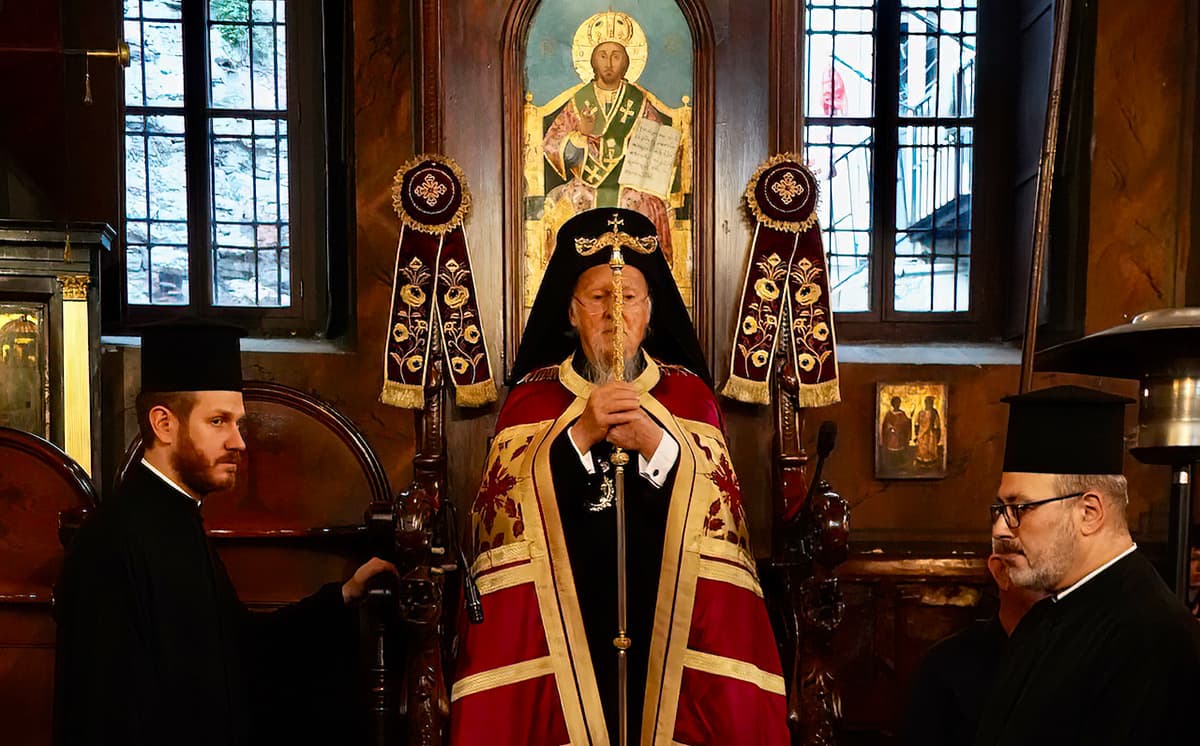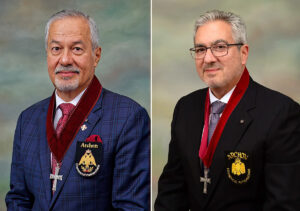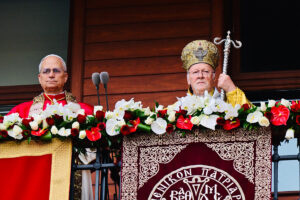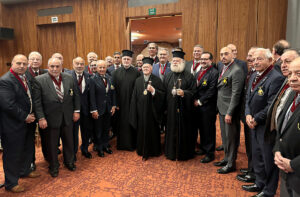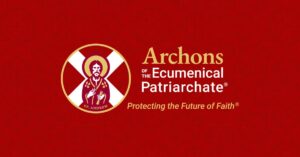As artificial intelligence (AI) becomes an ever more common feature of our daily lives, the imperative to prevent abuse of it grows increasingly urgent. In several recent public addresses, His All-Holiness Ecumenical Patriarch Bartholomew has spoken about the ethical issues surrounding AI, providing much-needed wisdom on this new and still largely unexplored field of human endeavor.
His All-Holiness recently formally inaugurated the 4th International Ecological Well-Being Conference, “Artificial Intelligence, Technoethics, and Youth,” at the Marasleio School in Athens. In his address, he reminded those attending the conference that “the Orthodox tradition is an inexhaustible source of vital principles and truths for humanity and the world.”[1]
His All-Holiness further explained: “Naturally, the remarkable theological texts do not contain ready-made answers to address contemporary problems. Instead, they require study and serious theological effort to articulate the proposal of life, freedom, and the universal values of Orthodoxy. For this reason, we are pleased to see theology engaging with the topic of ‘artificial intelligence.’”
The Ecumenical Patriarch also spoke about the conflict that some see between faith and science, and emphasized that new scientific innovations had to be used in an ethical manner. “In light of the remarkable advancements in science and technology,” he said, “we affirm our conviction that these achievements, when used responsibly and ethically, can contribute to genuine progress without compromising fundamental moral and spiritual principles and values. We do not regard the conflict between faith and science as inevitable.”
Regarding artificial intelligence, His All-Holiness reminded those in attendance that “your conference – our conference – also focuses on young people, whose lives will inevitably unfold within the environment shaped by the dynamic integration of artificial intelligence into our daily existence.” He added:
Obviously, the new generation is neither technophobic nor indifferent to new technologies, as these are integral to the core of their lives. The Church, while advocating for the responsible use of artificial intelligence, encourages young people to cultivate “spiritual intelligence” by exploring and embracing the invaluable spiritual and cultural treasures of our Orthodox Tradition. This aligns with the invitation extended to them by the Council of Crete in its Message: “The Orthodox Church addresses young people, who seek a life of fullness enriched by freedom, justice, creativity, and love. It invites them to consciously connect with the Church of Christ, who is the Truth and Life, and to actively engage with the ecclesiastical body, bringing their energy, concerns, aspirations, and expectations. Young people are not merely the future of the Church; they are its dynamic and creative presence, both locally and globally” (§ 11).Then in his address to the Parliamentary Assembly of the Council of Europe in Strasbourg, France, Ecumenical Patriarch Bartholomew again emphasized the imperative of maintaining respect for ethical boundaries when using AI.[2] “Looking at the Framework Convention on Artificial Intelligence of the Council of Europe,” His All-Holiness stated, “the Ecumenical Patriarchate observes notable progress in addressing crucial ethical and social concerns raised by this fast-growing technology.” He underlined the fact that “artificial intelligence has immense potential for positive transformation in environmental protection, education, and healthcare, offering innovative pathways to solve significant human problems. At the same time, from invasions of privacy to rising inequalities and possible compromise of institutions, this great tool also contains inherent risks.” Accordingly, His All-Holiness declared that “implementation of artificial intelligence requires respect of individual dignity, safeguard of fundamental freedoms, and advancement of social equity.” He added that “in this context, the Orthodox Christian tradition would underline moral discernment and direction along with scientific research and development.” He said that “the Ecumenical Patriarchate invites all nations to participate in this important project for the sake of supporting and shaping a technological growth that satisfies the universal needs of humankind, including the protection of human rights and religious freedom for those facing persecution and injustice, particularly religious minorities who have historically endured discrimination.” The Ecumenical Patriarch also noted that the stakes were extremely high. “We can make a difference in the world,” he concluded. “We can bring greater healing to its people. We can provide renewed hope if all of us—political and religious leaders—work together toward a shared goal: namely, to leave behind a better world for our children than what we inherited or created. A world where conflict and war are not the ways of resolving disputes and divisions; where all religions and all races are equally and indiscriminately respected; where people have enough love as the mother tongue of all humankind; and where nature’s diversity is protected.” Were the innovators of AI technology to bear these eternal truths constantly in mind, the risks of AI would be substantially reduced, and indeed, could be eradicated altogether. —– [1] Dec. 20, 2024. [2] Jan. 27, 2025.
